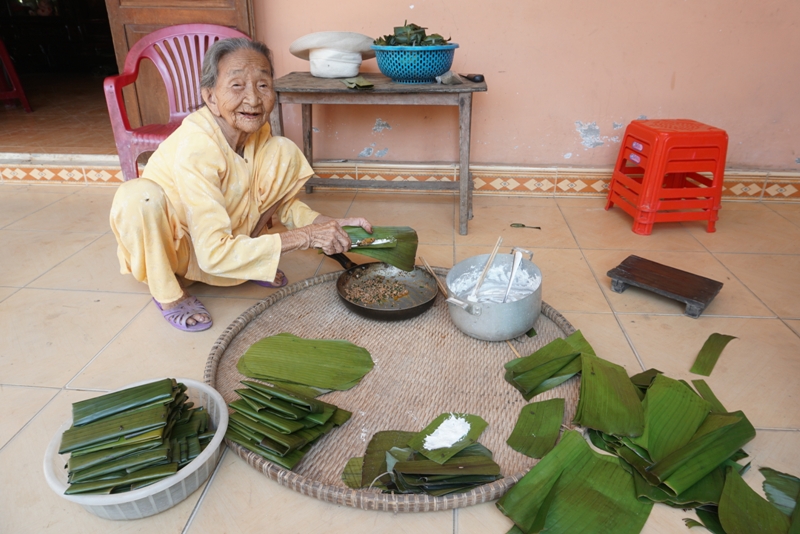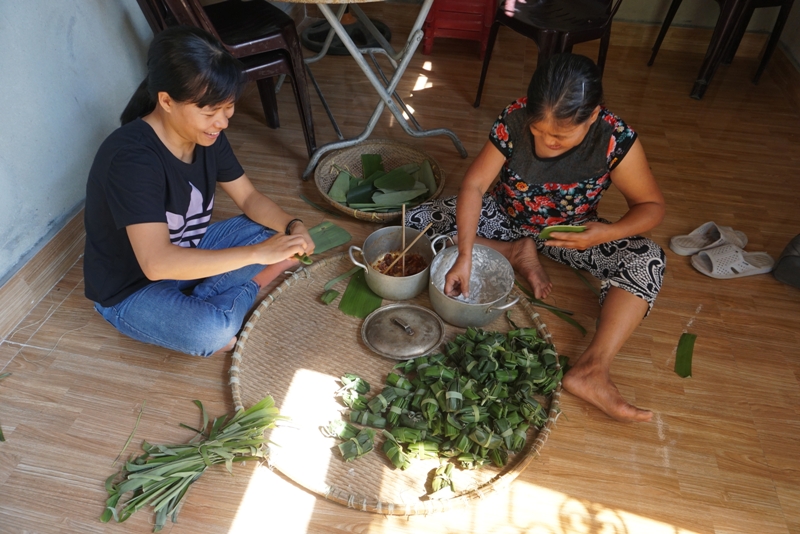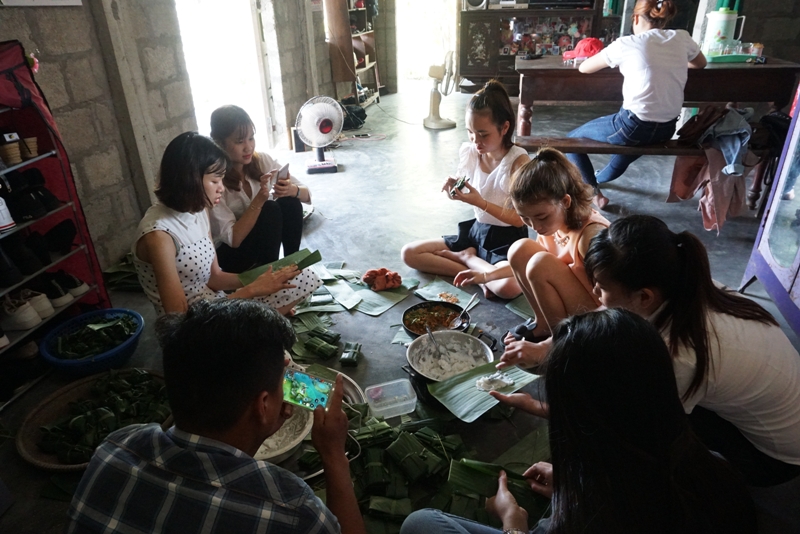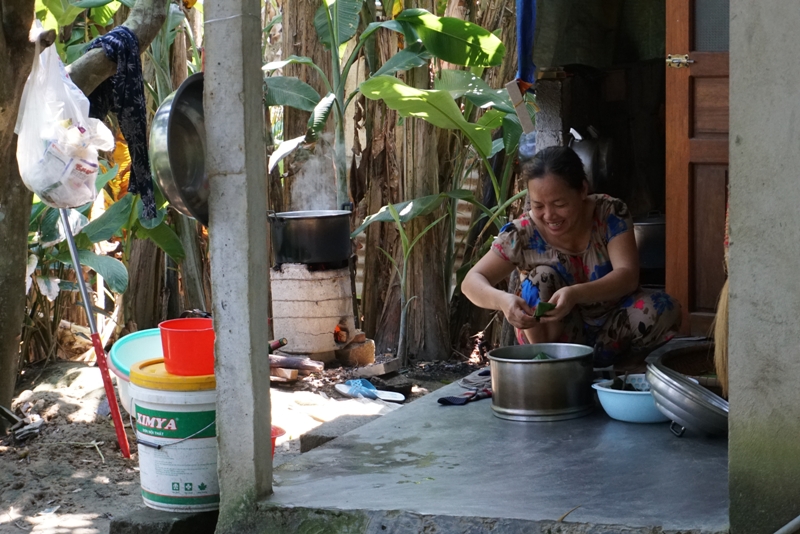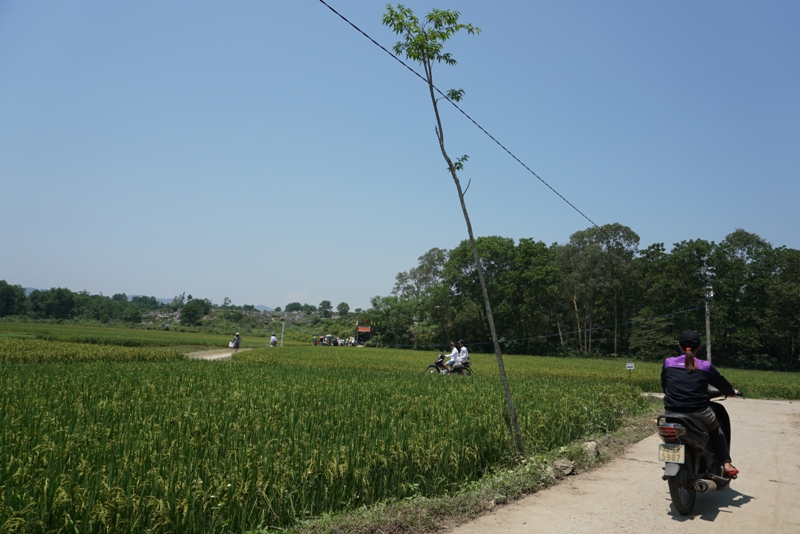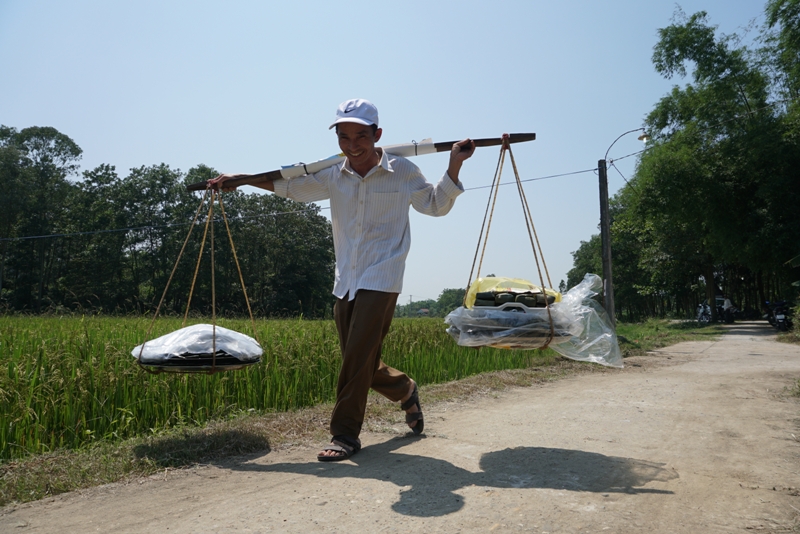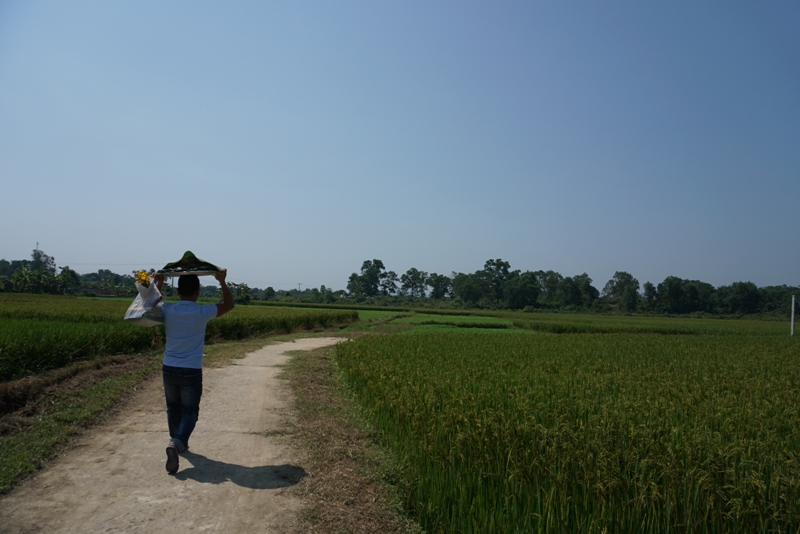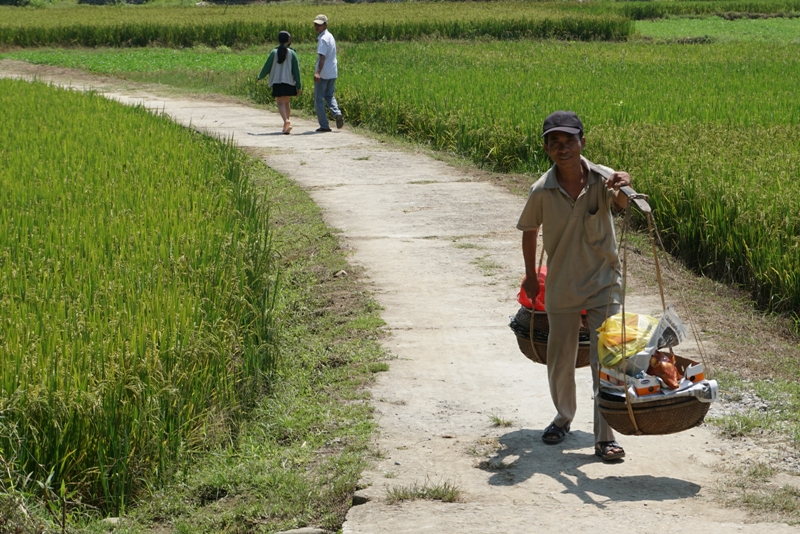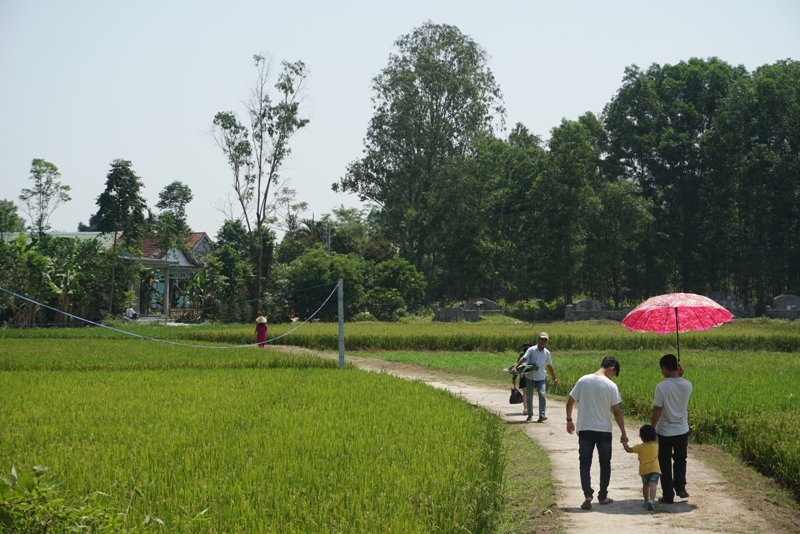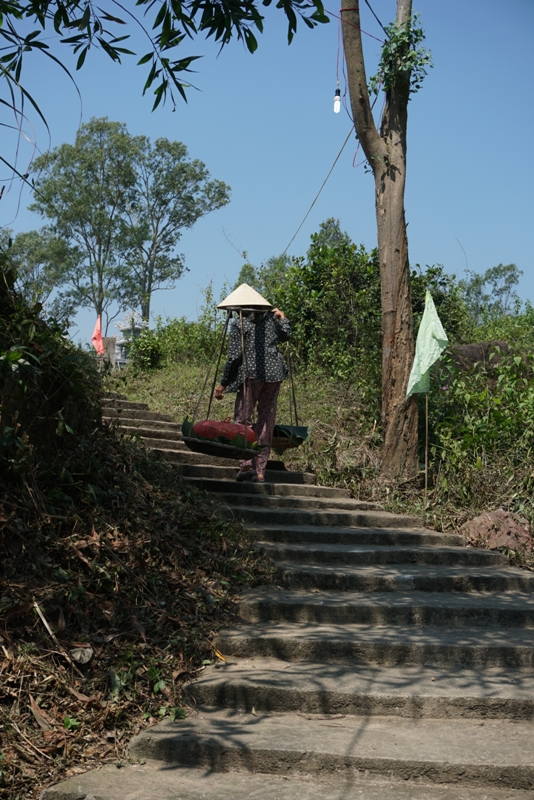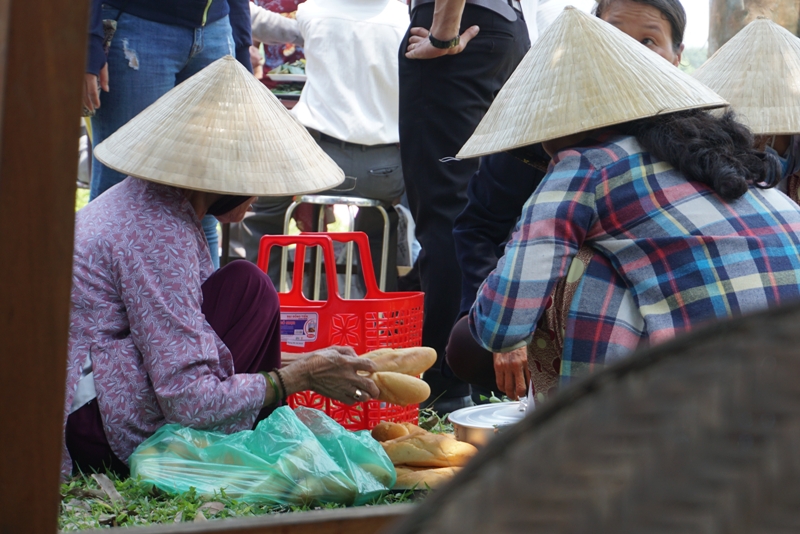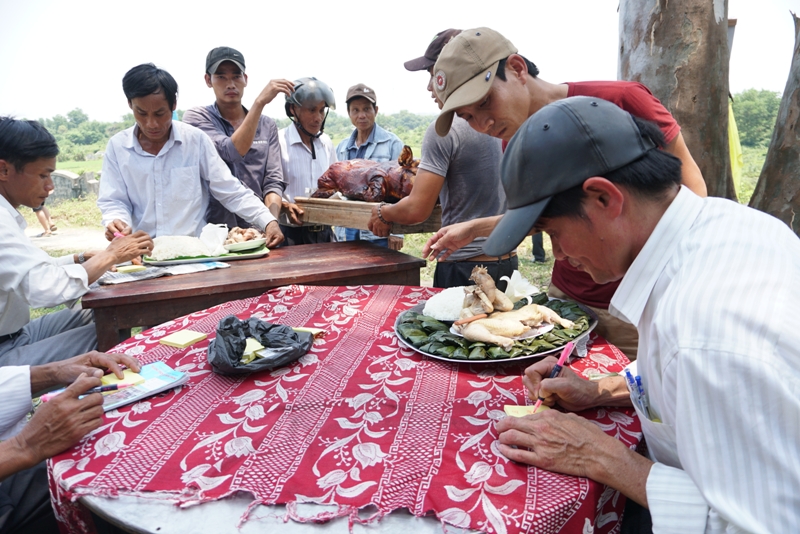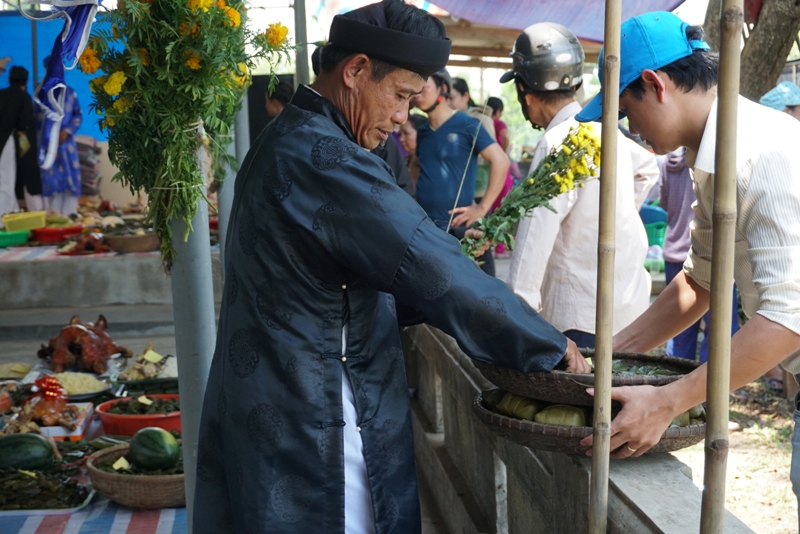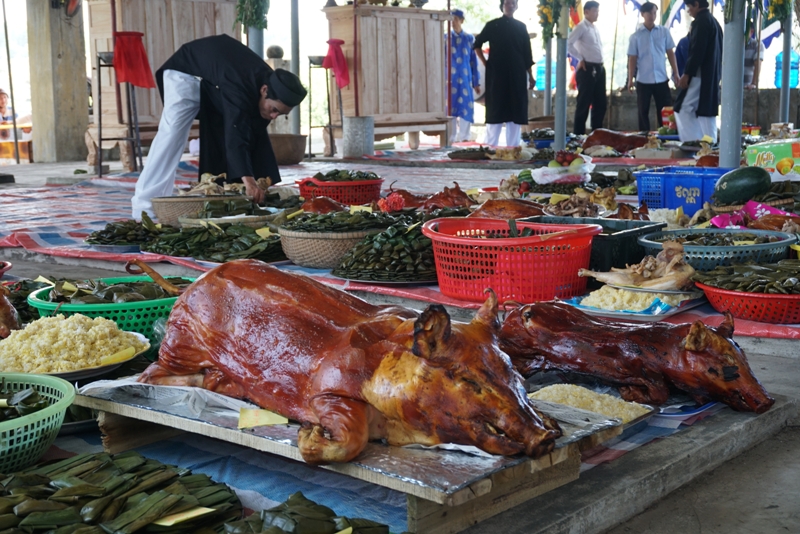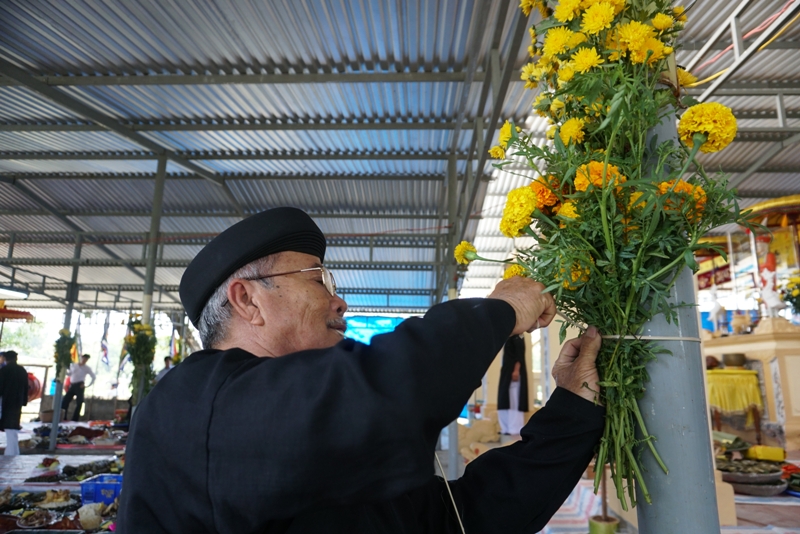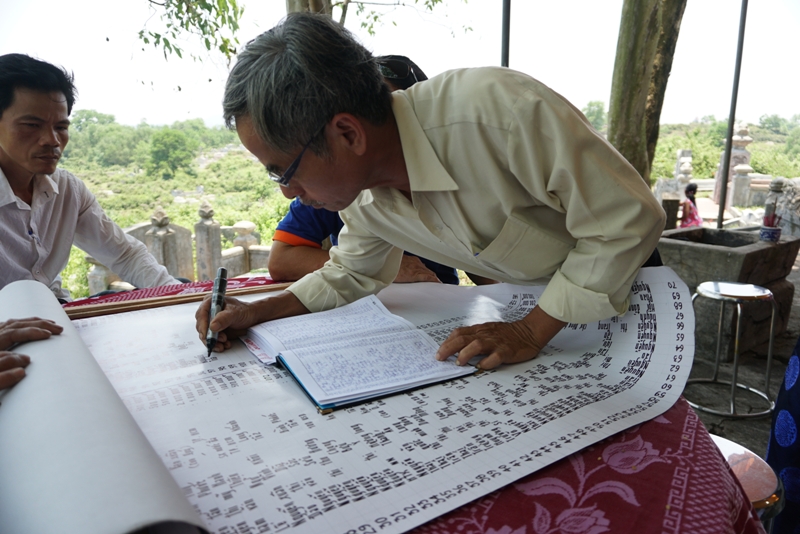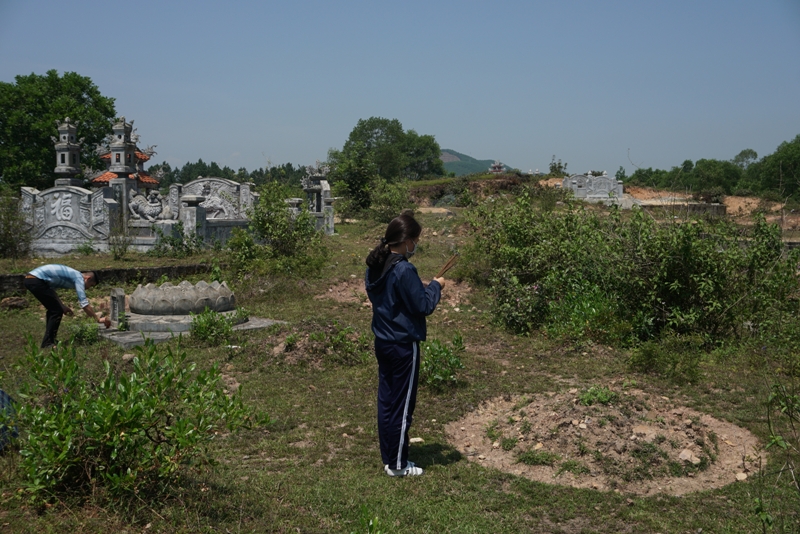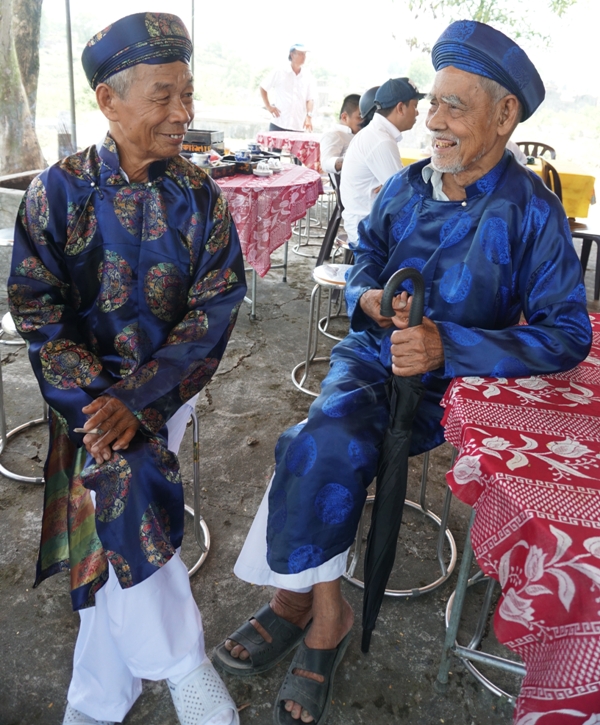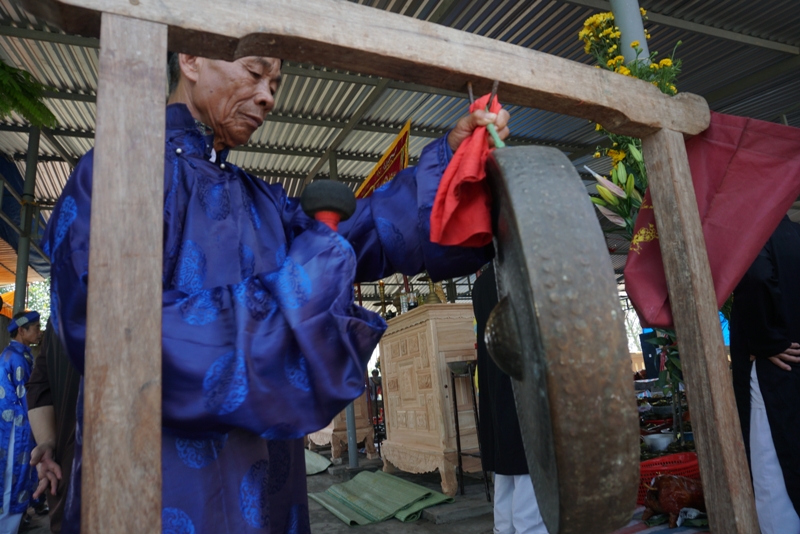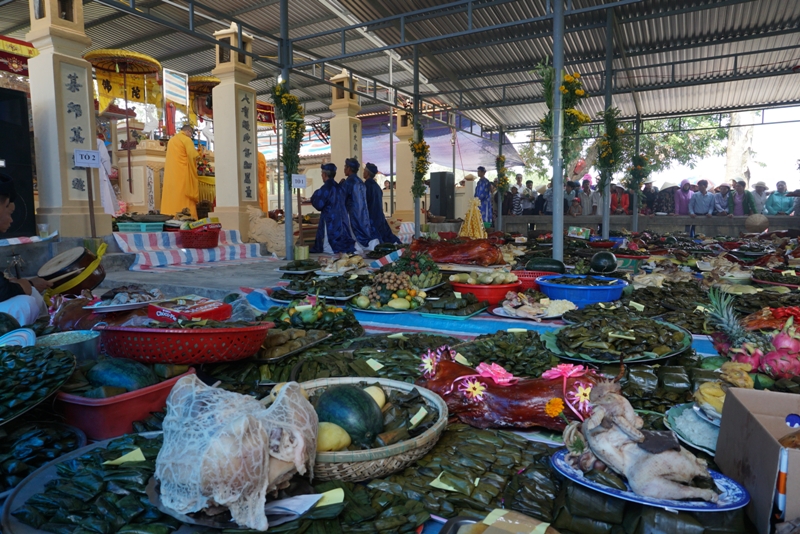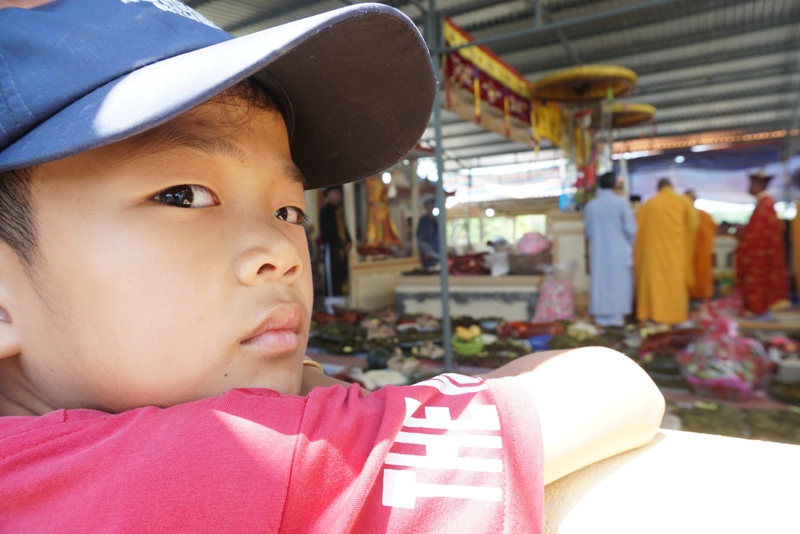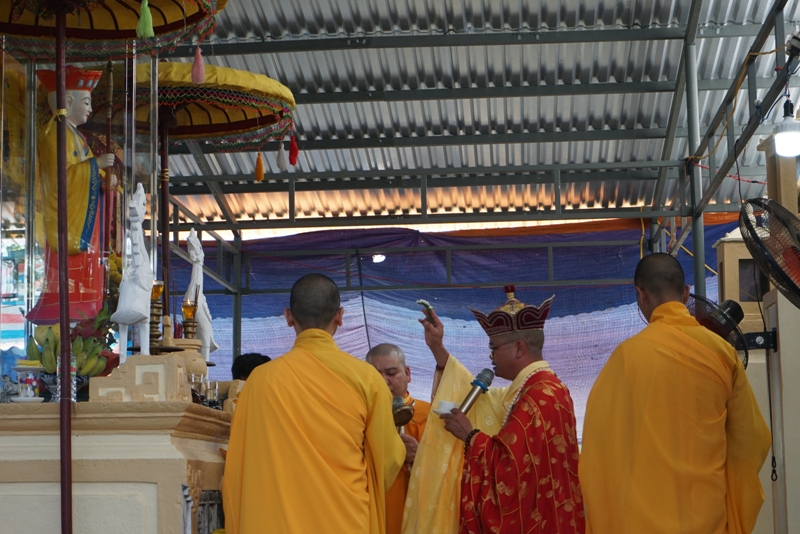
Many of us believe that after death we will still be here but in other form called spirit. We are in awe of the spirits, especially the wandering ones, for some mysterious reasons. With the hope to live in harmony with them, we often give them our thoughts and respects by burning incense sticks and offering them ritual processes on the full moon and new moon nights or at some other special occasions. In Trúc Lâm, a verdant village on the edge of Huế City, the villagers choose the 7th and 8th days of the 3rth month according to lunar calendar to commemorate the wandering spirits and their deceased family members or relatives.
From the early morning of the 7th day or the evening before, almost every home starts to make their own offerings for the Wandering Spirit Anniversary. The offerings are usually different kinds of bánh which are made of rice or tapioca paste, such as bánh nậm, bánh ít, bánh chưng, bánh lọc, etc. Whole roasted pigs, steamed roosters, steamed sticky rice or fresh fruits are also found in this anniversary. The offerings will be divided into two: the major parts which are dedicated to the wandering spirits will be carried to the temple where the anniversary is taken place; and the rest will be placed on each family’s altars to offer to their ancestors.
The temple where this ceremony is organized is called the village’s wandering spirit temple and located on the top of the hill surrounded with villagers’ graves. Elderly men are in the solemn traditional costume of áo dài and khăn đóng (Vietnamese turban) as they are the key people of the ritual process. Buddhist monks are also invited to attend this once-a-year tradition. They would come to chant, and together with the villagers pray for the wandering spirits to rest in peace and for the happiness and the prosperity of the whole village.
The villagers of Trúc Lâm are not sure when this ceremony was first organized (some said a few hundred years) and by whom, they dutifully follow what their ancestors have done and pass it down from generation to generation probably because they believe this tradition teaches their descendants to always remember and respect their ancestors, and to show their compassion to others, alive or deceased.
